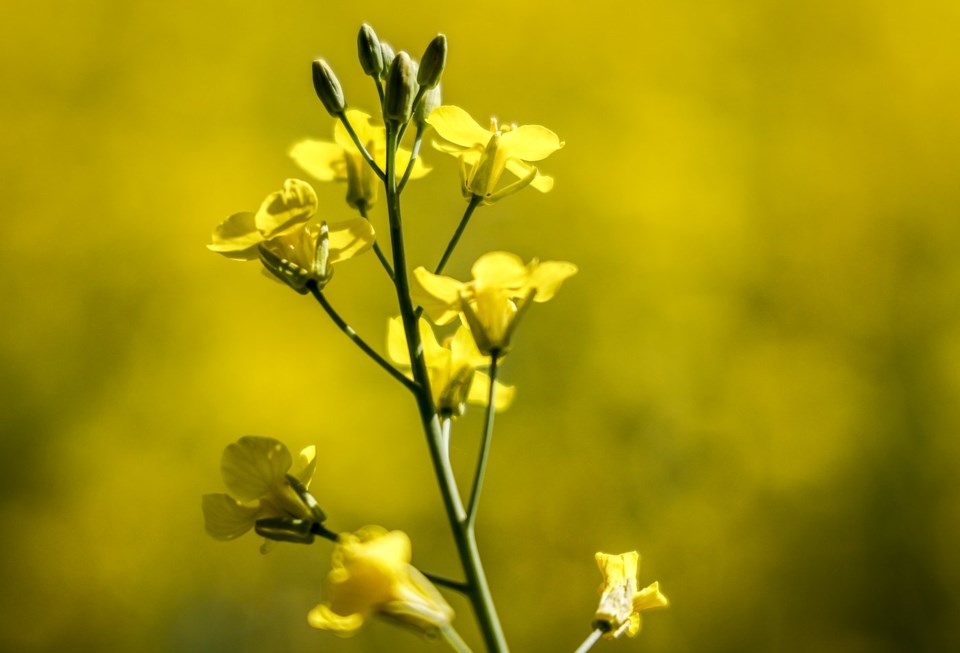CALGARY — Saskatchewan farmer Ian Boxall is blunt about why he plants canola, the crop caught in the crossfire of the latest trade dispute between Canada and China, every year.
"Historically, canola has been, you know, a Saskatchewan farmer's best money-maker," said Boxall, speaking from his farm near Tisdale in the northeast part of the province.
Boxall — who also serves as president of the Agricultural Producers Association of Saskatchewan — said this year's crop looks good, and he expects to start harvesting his 2024 canola within the next week or so. But whether it will be the money-maker it has traditionally been will depend a lot on what happens as a result of China's decision this week to launch an anti-dumping investigation into Canadian canola imports.
"There's a lot of uncertainty right now, but a lot of the toll will be felt right here in Saskatchewan," Boxall said.
Canada produces about 20 million tonnes of canola annually, according to industry statistics, the bulk of it from the western provinces of Alberta, Saskatchewan and Manitoba.
Best known for its brilliant yellow flower, canola is in demand around the world because of its usefulness as a livestock feed, cooking oil or biofuel. It is one of the most widely grown crops in Canada, generating about one-quarter of all crop revenues on Canadian farms.
China has historically been the biggest buyer of Canadian canola seed, and was expected to purchase about 70 per cent of Canada's canola shipments this year, according to Statistics Canada.
The country's move to target canola comes in response to Canada's previously announced plan to impose tariffs on Chinese-made electric vehicles, steel and aluminum.
In a news release Tuesday, China's Ministry of Commerce said it is launching an anti-discrimination investigation into the tariffs and an anti-dumping probe into Canadian canola imports, as well as certain chemical products.
China also said it would take the case to the World Trade Organization.
It's unclear exactly what the repercussions of China's move will be. Unlike in 2019, when China barred canola seed imports from two major Canadian companies amid heightened tensions between the two countries following the Canadian detention of Huawei executive Meng Wanzhou at the request of the United States, Canadian canola is not currently being prevented from entering the country.
"We're still looking for additional information regarding the duration and scope and process (of an anti-dumping investigation)," said Chris Davison, president of the Canola Council of Canada.
"While the investigation was announced (Tuesday), we still haven't been made aware of the details."
But the prospect of an anti-dumping investigation, and any penalties that could be instituted as a result, sent shock waves through commodities markets Tuesday. The global benchmark price for canola seed, ICE canola futures, fell more than six per cent on the news.
China's announcement also caused anxiety to spike throughout the farming community. The Keystone Agricultural Producers, a Manitoba farmer organization, posted a link on social media encouraging producers to reach out for mental health support if necessary in the wake of the China news.
"We know this is a stressful time with harvest ongoing, and the current uncertainty with trade challenges can only add to that," the Keystone Agricultural Producers said in its post.
Chris Davison, president of the Canola Council of Canada, said Prairie farmers have already been through a stressful few years of extreme weather conditions and drought.
"We will be working with and calling on government to provide appropriate levels of support to our industry in the face of what is potentially another significant challenge," Davison said.
On Tuesday, Saskatchewan Premier Scott Moe called on social media for a swift resolution to the trade dispute.
He noted that when Canadian canola seed exports to China were targeted from 2018 to 2019, they fell by $2 billion, and over $1 billion of that was from Saskatchewan.
Gordon Houlden, director emeritus of the China Institute at the University of Alberta, said it's possible China's anti-dumping investigation could be wrapped up within weeks, or it could stretch into months.
But he said even if the process goes quickly, there is likely to be a significant economic impact. Even without an official ban on imports, Chinese purchasers could feel a "chilling effect" as a result of the investigation and be reluctant to buy Canadian product.
In Canada, too, the uncertainty around the situation could lead farmers to plant fewer canola acres next spring.
"So there will be a price to be paid fairly soon, and that will only increase over time," Houlden said.
"I mean, the canola will always be sold somewhere. The problem is that there's no market equivalent to that of China, with its size and its appetite for high quality canola oil."
This report by The Canadian Press was first published Sept. 4, 2024.
Amanda Stephenson, The Canadian Press


